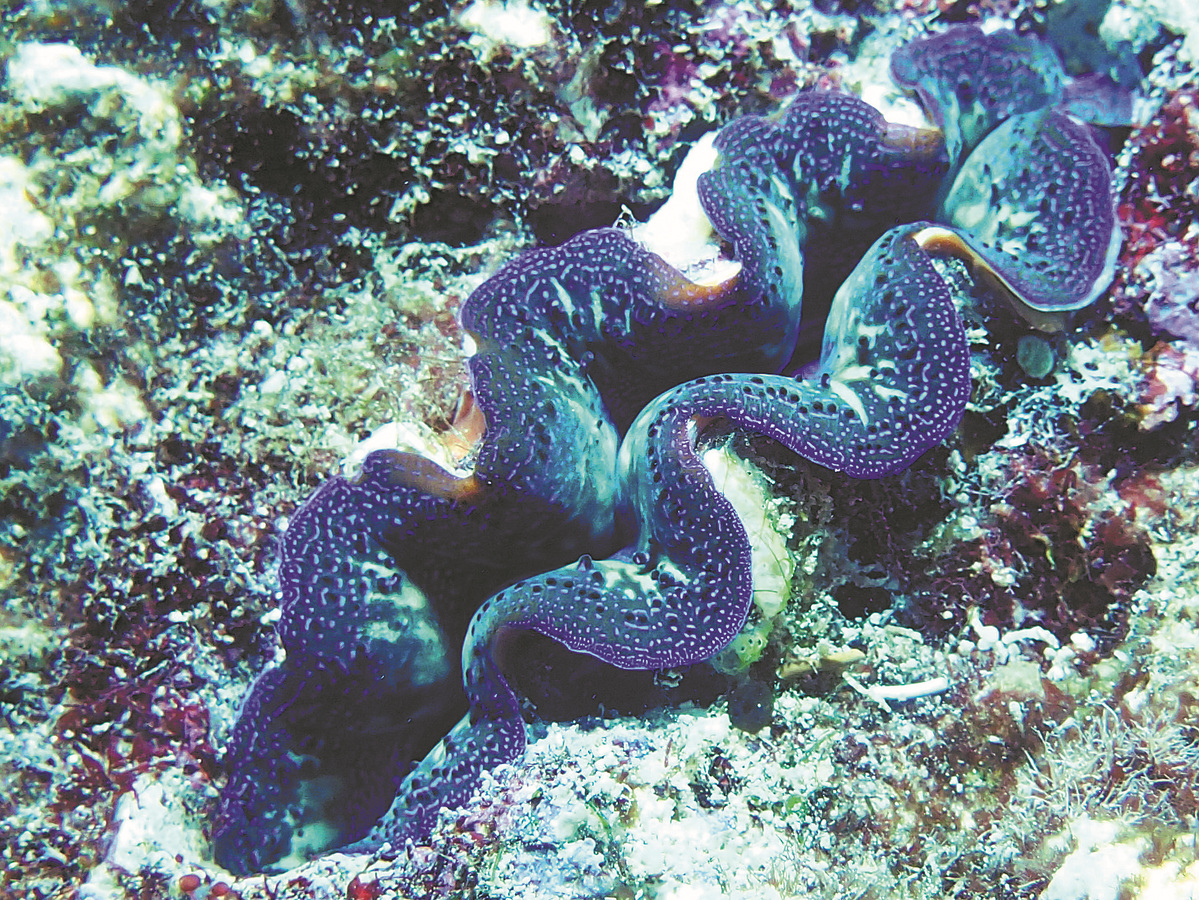Huangyan Island's coral reefs prosper, report says
Sound marine environment helps to foster robust ecosystem


The coral reef ecosystem of China's Huangyan Island in the South China Sea has thrived despite the global coral bleaching crisis, according to a report published on Wednesday.
Experts said the coverage of live coral and species diversity has grown over the past decade, and the exceptional marine environment of the island has fostered a coral reef ecosystem that is healthy and robust.
There are now 109 reef-building coral species recorded, a new peak in biodiversity in a region that recorded 64 such species in May 2015, the report said. The average coverage of live reef-building coral is now 28.6 percent, higher than the investigation results in 2015, it said.
The report, based on an on-site investigation conducted from May to June, was jointly published by five research institutes, including the South China Institute of Environmental Sciences and the National Marine Environmental Monitoring Center.
Yang Jing, a researcher at the institute who participated in the investigation, said, "While global warming has brought about an overall deterioration of coral reefs worldwide, the coral reef ecosystem around Huangyan Island has maintained its healthy condition, our data shows."
Reef-building coral play a vital role in marine ecosystems, serving as sensitive environmental indicators and essential components for assessing marine ecosystem health. In addition, the calcium carbonate they secrete not only provides the structural foundation for coral reefs, supporting marine life activities and habitats, but can also form islands after tens of millions of years.
The average live reef-building coral coverage in northeastern Huangyan Island has reached 37.1 percent, comparable with around 35 percent, which was recorded in 2023 in the northern and southern regions of the Great Barrier Reef in Australia, she said.
Huangyan Island has imposed strict restrictions on fishing activities and implemented a summer fishing moratorium, and the area now has a strong natural ability for coral recovery, with more than five juvenile coral observed per square meter, Yang said.
The report also showed a high biodiversity in its coral reef ecosystem, with 125 coral reef fish species, along with other key groups such as crustose coralline algae, giant clams and sea anemone.
In addition, the investigation revealed the excellent environmental quality of Huangyan Island, with seawater quality and marine sediment quality both rated as Grade I level.
Lin Kui, deputy head of the South China Institute of Environmental Sciences, said, "It is the first time to verify no cyanide was detected in the seawater, sediment and fish samples from Huangyan Island."
The average weight density of floating litter was 2.6 grams per square kilometers, with all the collected litter being plastic. Compared with other offshore areas worldwide, the weight density is relatively low, Lin said.
Yu Kefu, a professor at Guangxi University's Guangxi Laboratory on the Study of Coral Reefs in the South China Sea, which was among the five research institutes that jointly released the report, said that as the primary cause of coral reef degradation, global warming has also led to an increase in sea surface temperatures and degree heating weeks — or DHW, a unit measuring the accumulated heat stress on coral reefs — around Huangyan Island. However, the coral reefs have displayed resilience and adaptability to the warming climate, showing no signs of disease and maintaining a low incidence of bleaching.
"We will continue to conduct scientific investigations, ecological monitoring and research on coral reefs in this area to further reveal their evolutionary patterns," Yu said, adding that the excellent coral reef ecosystem will hopefully provide new insights on how global coral reefs respond to the challenges of global warming.
limenghan@chinadaily.com.cn
- China's commercial rocket launches new satellites from sea
- Ten photos from across China: Jan 9 - 15
- Legal tools essential for AI regulation
- China launches remote-sensing satellite for Algeria
- China reports drop in workplace accidents, fatalities in 2025
- From Kansas to karst: Unpacking Guangxi's charms



































